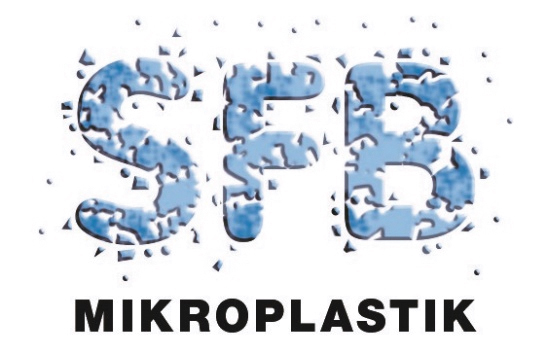C-Projekte

Degradation von Kunststoffen in natürlichen und technischen Systemen sowie die Entwicklung neuer Lösungsansätze
C01: Entstehung und Abbau von Mikroplastik unter simulierten Umwelteinflüssen: Mechanische und UV-Beanspruchung
C01 erforscht im SFB 1357 den Einfluss anisotroper Geometrien wie Fasern (1D) und Folien (2D) sowie zugesetzter, kommerzieller Additive auf die Alterung der Kunststoffe PS, PE, PP und PA6 bei Bewitterung unter umweltrelevanten Bedingungen. Die Kombination komplementärer Analysemethoden erlaubt neben Veränderungen im Alterungsmechanismus, den Abbau, die Migration und das Auswaschen der Additive bzw. der Additivfragmente aufzuklären. Dies ist zentral, da die chemischen Veränderungen die Toxizität von Mikroplastik (MP) beeinflussen. Hierauf aufbauend werden Monomaterial- und Multimaterialmehrschichtfolien entwickelt, die eine geringere Umweltbelastung bei gleichzeitigem Erhalt der Funktionseigenschaften aufweisen. Ein zentraler Steuerungsparameter ist die Additivierung einzelner Schichten sowie ihrer Anordnung im Laminat. So erwarten wir, Synergien bzw. Inhibierungen bei der Alterung der einzelnen Folienschichten im Vergleich zum homogenen Film zu verstehen und schlussendlich nutzen zu können. Die Lösungsansätze zur Reduzierung von MP durch verfahrenstechnisches und werkstoffliches Design sollen in der 3. FP konsequent um neue Materialien und Erkenntnisse aus den anderen Teilprojekten ergänzt werden.
Teilprojektleitende: Prof. Dr.-Ing. Holger Ruckdäschel, Prof. Jürgen Senker
C02: Abbau von biologisch abbaubaren Polymeren und ihren Ton-Nanokompositen unter umweltrelevanten Bedingungen
Als „bioabbaubar“ gekennzeichnete Verpackungsfolien aus PLA oder PBAT bauen in vielen Umweltkompartimenten und technischen Anlagen nicht hinreichend schnell ab. Zudem sind weder die mechanischen Kenndaten noch die Gasbarriereeigenschaften ausreichend für Anwendungen in der Lebensmittelindustrie erfüllt. In der 2. Förderperiode des SFB 1357 will das C02 Projekt zudem Komposite entwickeln, deren Abbau nicht nur durch enzymatisch katalysierte Hydrolyse befördert wird, sondern zusätzlich durch anoxische/oxische Redoxzyklen wie sie in der Umwelt oft angetroffen werden. Die Erwartung ist, dass die durch C02 erarbeiteten neuen bioabbaubaren Verpackungsmaterialien einerseits die Anforderungen an das Eigenschaftsprofil erfüllen und anderseits sich durch deren zügigen Abbau keine persistenten MP-Partikel bilden.
Teilprojektleitende: Prof. Seema Agarwal, Prof. Josef Breu
C03: Enzymatischer Abbau synthetischer Polymere
C03 stellt im SFB 1357 den Abbau von Mikroplastik (MP) durch direkte Interaktion mit Enzymen in den Fokus. Eine Reihe von PET spaltenden Hydrolasen zeigt das Potenzial natürlicher Enzyme synthetische Polymere abzubauen. Abbauraten und Selektivität der Enzyme kann durch rationales Design und gerichtete Evolution an verwandte Polymerarten angepasst werden. Ziel ist es die Interaktion der Enzyme mit verschiedenen Polymeroberflächen sowie die spezifische Substraterkennung besser zu verstehen und zu optimieren. So entwickelte Enzyme können die Grundlage bilden um Biorecycling großtechnisch zu verwirklichen oder den Abbau von MP aus PET und anderen aromatischen Polyestern in technischen Anlagen.
Teilprojektleitende: Prof. Birte Höcker
C04: Einfluss mikrobieller Diversität und Biofilmbildung auf Abbaumechanismen von Mikroplastik-Partikeln in der Umwelt
Mikroorganismen (MOs, Prokaryoten und Pilze) spielen eine zentrale Rolle bei der Mineralisierung von Mikroplastik (MP) in der Umwelt und stellen ein riesiges unerkanntes genetisches und metabolisches Abbau-Potenzial dar. Es ist daher das Ziel von C04, neue MP-abbauende MOs zu identifizieren, deren MP-Abbauwege aufzuklären, sowie Schlüsselenzym-kodierende Gene des MP-Abbaus und biologische Abbaumechanismen in der Umwelt zu erfassen. Reinkultur-Screenings, Abbauversuche mit Umweltproben und Identifikation von Schlüsselorganismen, stabile Isotopenbeprobung mit 13C-markiertem MP zur Verfolgung des MP-13C-Flusses und Gewinnung von Metagenomen der 13C-MP abbauenden MOs, gerichtete Isolierung, Genomik und Transkriptomik von Reinkulturen und Umweltproben sowie Genexpressionsstudien sollen am MP-Abbau beteiligte Enzym-kodierende Gene und MOs liefern. Beschleunigte Evolution wird zur Gewinnung hocheffizienter MP-abbauender MOs eingesetzt. Weiterhin wird untersucht, ob Biofilme, durch UV-absorbierende Eigenschaften, UV-abhängige Kunststoffoxidation inhibieren können und wie sich die mikrobielle Besiedlung auf die mechanische Stabilität sowie die Oberflächeneigenschaften von Kunststoffen auswirkt. Die hier gewonnenen Erkenntnisse sind zentral für den SFB 1357 und werden einen wesentlichen Beitrag zum Verständnis der Rolle von Mikroorganismen für das Schicksal von MP in der Umwelt liefern, die Erkennung von mikrobiellen ‚hot spots‘ MP abbauender MOs in der Umwelt ermöglichen, sowie eine Grundlage für die Entwicklung MP-Abbau-beschleunigender Additive und umweltfreundlicher Kunststoffe bieten.
Teilprojektleitende: Prof. Gerhard Rambold, Prof. Marcus Horn, Prof. Martin Obst
C06: Enzymatisch induzierte Fragmentierung bewitterter Polyolefin Mikropartikel
C06 untersucht im SFB 1357 den enzymatischen Abbau bewitterter Polyolefinmikropartikel (POMP) im Vergleich zu unbewitterten Partikeln. Es wird erwartet, dass beim enzymatischen Abbau der POMP bioverfügbare Oligomere gebildet werden, die dann von Mikroorgansimen metabolisiert werden könnten, und somit MP abgebaut wird. Neben Oxygenasen fokussiert sich die Auswahl der Enzyme vorwiegend auf solche, die unter Einwirkung von weiteren Faktoren Radikale erzeugen. Zusätzlich zu Peroxidasen, die mit Hilfe chemischer Mediatoren Radikale bilden, sollen auch modifizierte Light-Oxygen-Voltage (LOV) Proteine zum Zuge kommen, die unter Blaulichteinstrahlung mit hoher Effizienz Singulett-Sauerstoff, weitere reaktive Sauerstoffspezies und Radikale bilden.
Teilprojektleitende: Prof. Andreas Greiner, Prof. Andreas Möglich

